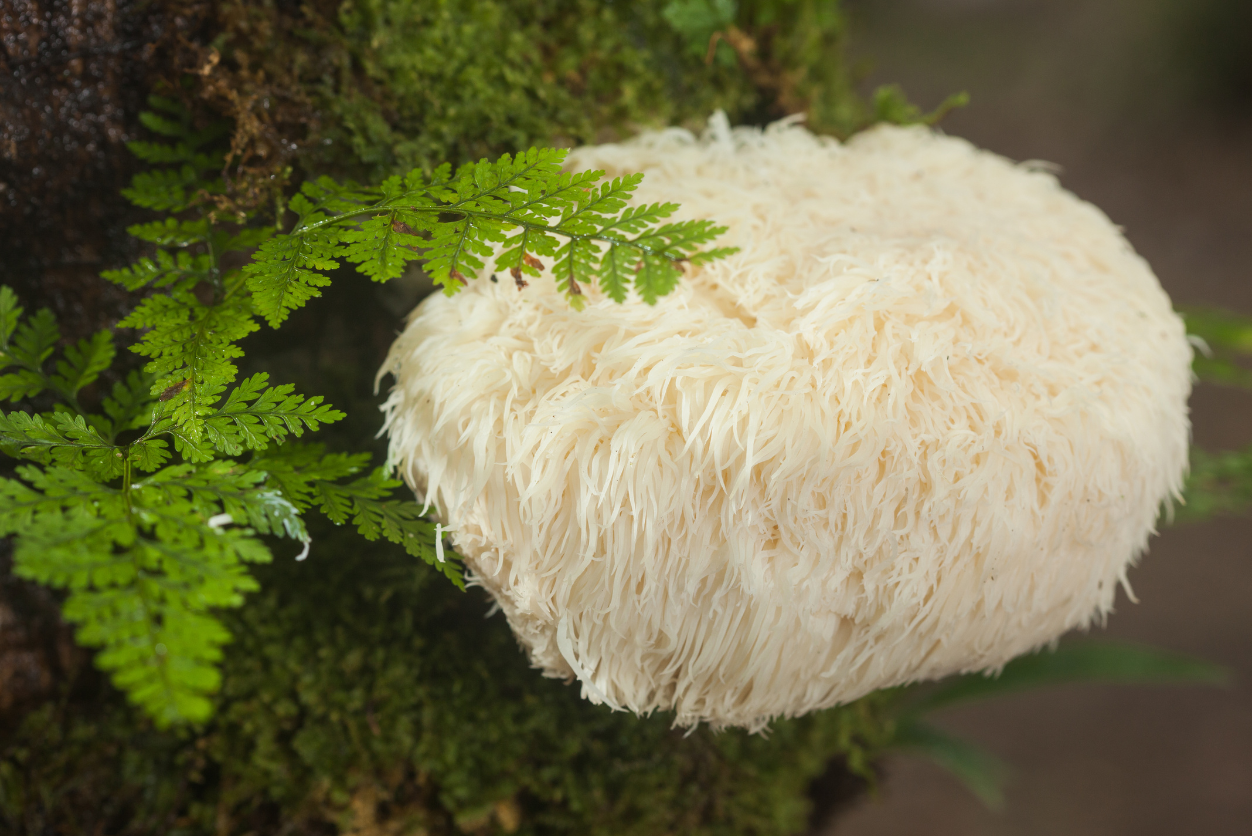Is Lion’s Mane Actually Good for Your Brain?

As we age, keeping our brains healthy and sharp becomes increasingly important. Cognitive decline is a concern for many, and while there are numerous supplements on the market claiming to enhance brain health, one natural remedy has piqued the interest of researchers and health enthusiasts alike: lion’s mane mushrooms. These mushrooms have been part of traditional medicine for centuries, but what does modern science say about potential lion’s mane benefits for the brain?
Related: Best Lion’s Mane Supplements
Lion’s mane mushrooms have long been used in traditional Chinese medicine, where they are praised for their supposed cognitive benefits. This interest is not just rooted in folklore; contemporary research is beginning to uncover scientific evidence supporting these claims. The focus is on specific bioactive compounds in the mushroom, primarily hericenones and erinacines, which are believed to support nerve growth and brain cell health.
These compounds have drawn attention due to their potential role in stimulating nerve growth factors, proteins crucial for maintaining and repairing brain cells. Nerve growth factors help ensure our neural networks remain healthy and robust, a function that can decline with age. The ability of lion’s mane mushrooms to enhance the production of these proteins could mean they help in maintaining cognitive functions like memory, learning, and concentration.
How Lion’s Mane Operates
To understand how lion’s mane mushrooms might benefit the brain, it’s essential to look into their mechanisms of action. Hericenones and erinacines are compounds thought to stimulate the production and effectiveness of nerve growth factors. Hericenones, found in the mushroom’s fruiting body, are linked to increased nerve growth factor production, while erinacines, found in the mushroom’s mycelium, support the differentiation and survival of nerve cells.
Research involving cell cultures and animal models has shown promising results. Studies on rats, for example, have demonstrated that lion’s mane extracts can promote the growth of new brain cells in the hippocampus, a region crucial for memory and learning. Rats fed with lion’s mane exhibited enhanced memory and learning abilities, suggesting these compounds support brain plasticity and resilience.
Moreover, lion’s mane mushrooms may offer neuroprotective benefits, shielding brain cells from inflammation and oxidative stress. A study conducted in Korea found that mice consuming lion’s mane had reduced brain cell death and inflammation, thanks to the anti-inflammatory properties of erinacines. This suggests that lion’s mane might help prevent or slow the progression of neurodegenerative diseases like Alzheimer’s and Parkinson’s.

Research vs. Real-World Lion’s Mane Benefits
While the scientific findings are compelling, how do they translate to real-world applications for humans? Human trials have produced encouraging results. Participants who incorporated lion’s mane into their diet reported improved cognitive performance and memory recall. A Japanese study highlighted that individuals taking lion’s mane supplements for 12 weeks scored higher on cognitive tests than those taking a placebo. These findings suggest that the benefits observed in lab and animal studies might also apply to humans.
However, it’s crucial to approach these findings with cautious optimism. While initial results are promising, more research is needed to fully understand the mechanisms by which lion’s mane exerts its effects and to determine optimal dosages for humans. As with any supplement, it is essential to consult a healthcare professional before adding lion’s mane to your routine, especially if you have existing health conditions or are taking other medications.
Incorporating lion’s mane mushrooms into your diet can be simple and versatile. They are available in various forms, including fresh, dried, and as supplements like powders or capsules. Whether you enjoy the mushroom’s flavor in your cooking or prefer the convenience of a supplement, there are options to fit different lifestyles.
Ongoing Research
As research into natural remedies continues, lion’s mane mushrooms hold promise for supporting cognitive function and brain health. Their potential to enhance memory, protect against inflammation, and stimulate brain cell growth makes them a subject of ongoing interest for both scientists and health enthusiasts.
While there is much excitement about the potential of lion’s mane, it’s essential to recognize that scientific research is still in its early stages. Many questions remain unanswered, such as the specific compounds responsible for the mushroom’s effects and how they interact with the human brain at a biochemical level. Some studies suggest that a combination of compounds, including hericenones and erinacines, may contribute to the restorative effects of lion’s mane, but further research is needed to clarify these mechanisms.
Additionally, the implications of lion’s mane for treating neurodegenerative diseases are an area of active investigation. The observed deficiency of nerve growth factors in individuals with Alzheimer’s disease points to potential therapeutic applications. However, clinical trials are necessary to establish the efficacy and safety of lion’s mane as a treatment option for such conditions.
Building a Stronger You
Supplement Institute is the fruit of extensive online publishing experience, spanning the breadth of SEO strategies to the nuances of paid advertisements. Our journey, marked by significant achievements and learning moments, inspires our core mission: to empower our readers with an abundance of information. By sharing insights and key learnings, we aim to provide you with the knowledge needed to navigate the complex world of supplements, helping you make well-informed decisions for your health and well-being. Welcome to Supplement Institute, where information is your greatest supplement.